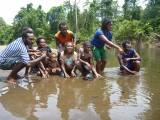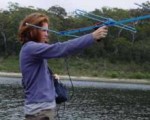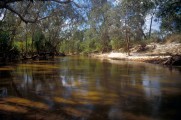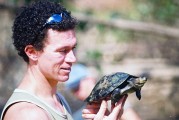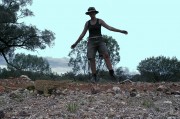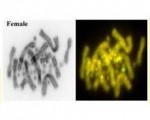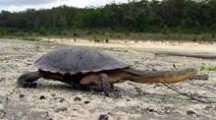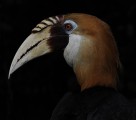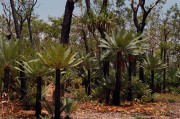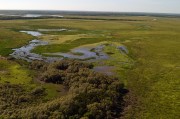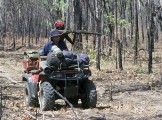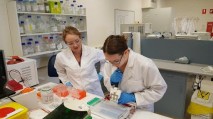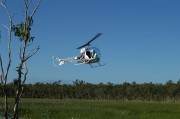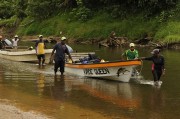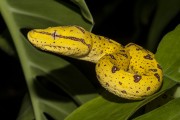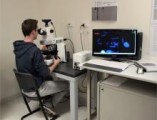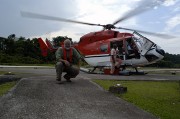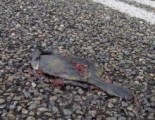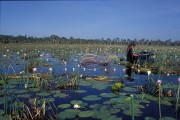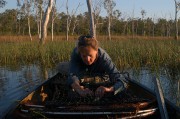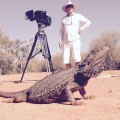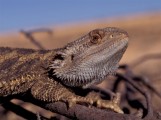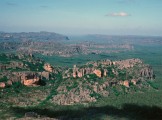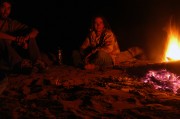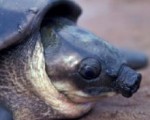Really pleased to see the opportunities to work in PNG panning out for Jasmyn Lynch with her new and insighful article entitled "Respect, reflect, and engage – enhancing biophysical research practices with Indigenous people, their land, and culture" that appeared yesterday in the Australasian Journal of Environmental Management, (24:319-331; ). Well done Jasmyn!! The work is funded by the Hermon Slade Foundation.

Jasmyn's project is on enhancing conservation and cultural knowledge through orchids of Papua New Guinea. It is a collaborative project undertaken through the Institute for Applied Ecology at the University of Canberra with Jim Thomas of the Tenkile Conservation Alliance, Papua New Guinea.
With globally declining biodiversity and increasing human populations and pressures on resources, it is imperative that we improve our approaches to biodiversity conservation and management. This is particularly important in biodiverse developing countries such as Papua New Guinea (PNG), which are known for extremely high biological and cultural diversity yet under intense development pressure for their natural resources. Orchids are an exemplar of the immense but little studied plant diversity of PNG. There are over 3000 orchid species in PNG, although many endemic orchids may have already become extinct. As in many countries, orchids in PNG have socio-cultural importance, being ‘farmed’ by some communities and valued plants commonly being distributed among relatives.
Most of PNG is under traditional land tenure, so community awareness and participation in conservation initiatives is imperative. Integrated, small-scale community-focused and community-backed projects are increasingly being shown to yield positive, enduring outcomes by conserving highly threatened, culturally important taxa while also addressing some of the social needs of local communities. Flagship species and taxonomic groups are prized local assets which provide the opportunity for researchers and practitioners to work directly at the local level to enhance engagement, awareness, and education on conservation and resource management.
Jasmyn's and Jim's project will contribute to a greater understanding of the orchids of the Torricelli Mountains, Sandaun Province, in north-west PNG, and their conservation needs. Using a transdisciplinary approach, our project will evaluate scientific, historical and cultural knowledge on the distribution, ecology, local Indigenous values and uses, and past and present cultivation of local wild orchids. The primary outcomes of the project will be an assessment of the conservation requirements of these orchids as an iconic group of plants that can be a focus for raising conservation awareness, while building on local socio-ecological knowledge, skills, capacity and development.
This most recent paper contributes centrally to the overall project objectives.
Abstract: Enhancing the research practices of biophysical scientists who conduct research with Indigenous people or on their land is important for scientific, ethical, and conservation reasons. Many areas of high biodiversity overlap with areas of high cultural diversity, and many Indigenous communities own and manage biologically significant areas. By taking a reflective, ethical, and empowering approach to their research practice, scientists can achieve more rigorous, effective science that gains from indigenous knowledge and support while assisting local people to conserve and manage their resources. A co-participatory approach to conservation-relevant research with Indigenous people or on their land is recommended, and the implications of this approach compared to more narrow approaches are discussed.
Jasmyn's paper can be downloaded here. Enjoy.

